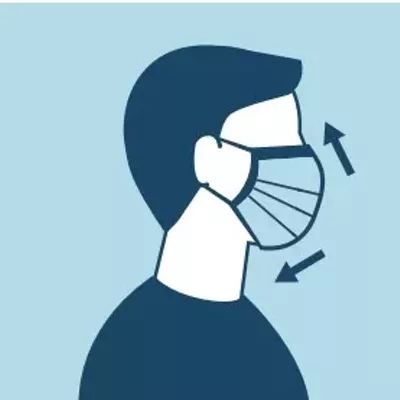PACC held a spirited meeting to discuss the contract proposal on Monday, Nov. 20, at the El Rio Neighborhood Center. Animal-control officials invited representatives from charitable rescue organizations to give their opinions.
PACC manager Kim Janes said about 70 percent of the animals who wind up at PACC are put to sleep, "because we don't have enough places for them to go."
In the past, rescue organizations have provided housing and rehabilitation for animals that might not be suitable for adoption because of behavioral issues or health problems. This frees up space at the shelter and cuts down on euthanasia. The rescuers in turn adopt out the animals, often using more stringent criteria to determine who's fit to take them than the baseline laws that guide PACC's adoption process. Up to one-third of adoptions from the center are brokered through rescuers, Janes said.
Now, PACC would like to see individuals allowed to adopt these last-chance animals; they were prohibited from doing so in the past. This is problematic for Reagen Kulseth, president and legal counsel for Saving Animals From Euthanasia (SAFE), who didn't see any mechanism in the contract for making sure individual rescuers--as opposed to nonprofit rescue organizations--are legitimate and not just people with a pet obsession.
Animal hoarding is a recognized mental illness in which people keep a larger number of animals than they can properly care for.
Kulseth said anyone might be able to come in claiming to be a member of "Black-Dog Rescue," for example, without checks on whether the person will meet the standards required by Arizona law, such as sterilization of the animal before it's finally adopted out.
"There needs to be something in the contract that states that there's some sort of check on my conduct or my behavior," she said. "That's my concern: In opening it up to individuals, you need to do so responsibly. I think a contract is a real good way to do that, but I don't see anything here about what the qualifications are to make certain that (the animals) are spayed and neutered."
Janes said rescuers would be bound by the contract to sterilize animals before they're adopted. They would also be required to submit reports on animals that haven't been altered, he added.
"We err on the side of trusting people until they've been proven not trustworthy," he said. "That means (if there's) a complaint, we check them out, and they're not getting any more (animals). We'll also cite them for the problems they've caused."
However, Peggy Watson, who sits on the SAFE advisory committee, asserted that because no reports are required for altered animals, a hoarder could take home a dozen sterilized dogs without any oversight.
Janes confirmed that in those cases, no action would be taken "until we get a phone call and we go out and investigate that person."
"That makes me uncomfortable," Kulseth said. Rescue organizations go through the paperwork of establishing themselves as nonprofits, demonstrating a level of commitment to these animals, she said. On the other hand, individuals could be unmitigated slackers who pick up dogs on little more than a whim.
"All of us want to have more animals rescued, but you have to be responsible," she said. "There was an incident three weeks ago where my understanding is that a kennel worker at animal control said it wasn't animal control's problem that a dog was being adopted to a person who intended to keep it outside in an unfenced area. That's a dog at large."
Janes dismissed Kulseth's story as "hearsay" and insisted it's important to get more animals out the door, even if individual rescuers are the way to do it.
"On a case-by-case basis, we have individuals who will come in every once in a while and see a sick animal and say, 'Oh, I'll take care of that one. I want that,'" he said. "Because it's considered not suitable for adoption under our adoption program, it's not eligible for that person to rescue that dog. But that's the only dog this person wants; that's the only time they've ever been in here. And they can rescue it under this proposed new program."
If people sign an agreement indicating they'll abide by ordinances, and they have no record of animal-welfare problems, then PACC will hand the dogs over to them, Janes added.
Not everyone had criticism for the proposed plan.
"I do want to commend Pima Animal Care for coming up with this, because I think it's an excellent and a noble idea," said Shannon Lavenia, a representative for the Animal Rescue Foundation (ARF). "It's a long time coming that we've wanted a resource for public members to come in and adopt animals that they've bonded with who may require medical care, and we haven't been able to release (them) to them previous to that, because of the obvious concerns."
At the same time, Lavenia urged PACC to develop rules for turning over dogs to individual rescuers.
"We've got very strict protocols on how we take animals, and also how many animals we allow in certain foster homes and stuff," she said. "We have people who would love to take more, because they're more sympathetic than logical about it. So we add the logic to it. Members of the public, if they're unregulated, may take on more than they can chew."









